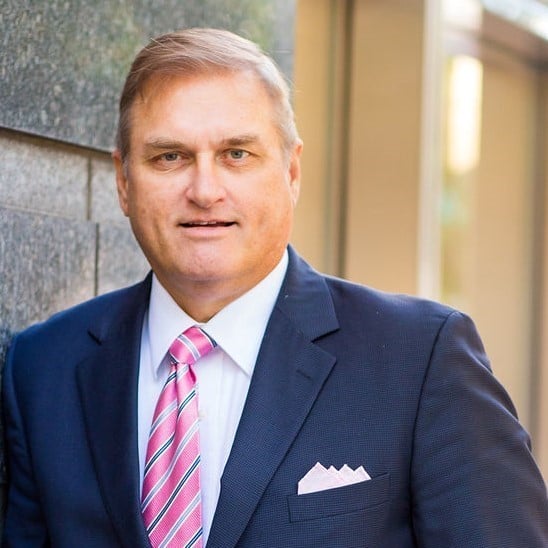Drinker Biddle Structured Settlement and Annuities Roundtable
The Drinker Biddle law firm Structured Settlement and Annuity Team introduced a new educational model last week when it hosted a one-day, invitation-only Structured Settlement and Annuities Roundtable at its Philadelphia office.
Drinker Biddle promoted the roundtable as “three substantive sessions on pressing issues facing the structured settlement industry and its participants, accompanied by opportunities for open discussion, collaborative thinking, and networking.”
What characterized this educational experience and made it uniquely worthwhile, in Independent Life’s experience, were its law firm sponsorship plus its seminar size and atmosphere. Although Drinker Biddle certainly used the event to introduce and market its legal talent, one of the side benefits for attendees was to learn about the array of structured settlement legal services now being provided in the marketplace by Drinker Biddle and other firms.
Jimmy Atkins Featured as Speaker
Jimmy Atkins, Independent Life’s CEO, was a featured speaker for one of the program’s three substantive sessions, joining Timothy O’Driscoll of Drinker Biddle and John McCulloch of Arcadia Settlement Group, to discuss Important Structured Settlement Trends, Notable Developments and Potential Trouble Areas.
Their market overview emphasized how the structured settlement market has acclimated to current low interest rates, how increasing plaintiff involvement has improved closing ratios and how and why workers’ compensation cases now represent a significantly higher percentage of structured settlement premium.
Among developing trends, the panel highlighted liability MSAs, personal injury settlement planning and pressing the boundaries of various structured settlement tax constraints.
The panel also identified several challenges for growing the structured settlement annuity market. These challenges include a myriad of alternative products to traditional structured settlement annuities and the need to “reclaim” the structured settlement brand from the secondary market.
Among his other remarks, Atkins’s contributions to this discussion included a detailed analysis of how interest rates and mortality (rated ages) impact annuity company pricing and took the opportunity to introduce two of Independent Life’s new and notable offerings, the Payee Protection Policy and non-qualified assignment products.
To grow the market, Atkins emphasized the importance of educating both plaintiff attorneys on how structured settlements help their clients and lead to faster settlements and a new generation of claims managers about the benefits using structured settlements can provide for their companies.
The program’s second session addressed Current Structured Settlement Tax Issues and featured Drinker Biddle’s David Shechtman and Matthew Meltzer as primary presenters. The most valuable portion of this session, at least for this author, was their discussion of the changes introduced by the Tax Cuts and Jobs Act of 2017 (TCJA).
Those TCJA changes, the negative results of which might be mitigated through structuring, are:
- The contingency fee trap for taxable claims caused by the IRC 67 amendment to suspend miscellaneous deductions thru December 31, 2025; and
- Elimination of deductions for settlement payments or attorney fees for sexual harassment or sexual abuse claims if either are subject to non-disclosure agreements [new IRC 162(q)].
Session 3, featuring Drinker Biddle’s Sandra Jones and Ingrid Hopkinson with Eugene Sanford of Allstate Financial as presenters, was titled Fraud and Deception in the Structured Settlement Industry. Although most of this discussion detailed various forms of bad business behavior by factoring companies, this author found most valuable the portions of this session which addressed:
- risks to issuers and up-front owners – resulting from such egregious behavior; and
- solutions for combating bad behavior.
Additional Roundtable Observations
- Settlement Planning – Although briefly referenced among developing trends, the roundtable did not provide a deep dive discussion about the structured settlement transition to personal injury settlement planning. Coincidentally, the day prior to the roundtable, the SEC imposed a higher best interest duty on investment brokers – a topic Independent Life will discuss in a subsequent blog post about structured settlement business standards.
- ABLE Accounts – ABLE Accounts were not discussed during the roundtable, although IRC 529A opened an important new sub-market for structured settlement annuities in 2014; and that code section was amended and improved by the TCJA; and it has resulted in 49 states adopting ABLE programs; and it has been subject to multiple additional legislative and regulatory developments since 2014 including Senate Bill 651.
Drinker Biddle should be congratulated for expanding the scope of structured settlement educational models being offered to participants in a changing market. The roundtable also points out educational issues where more legal perspective is needed to help the market successfully transition to personal injury settlement planning.

